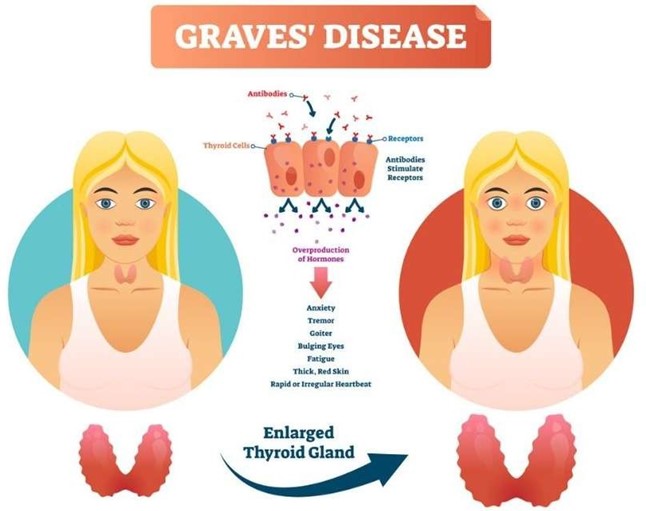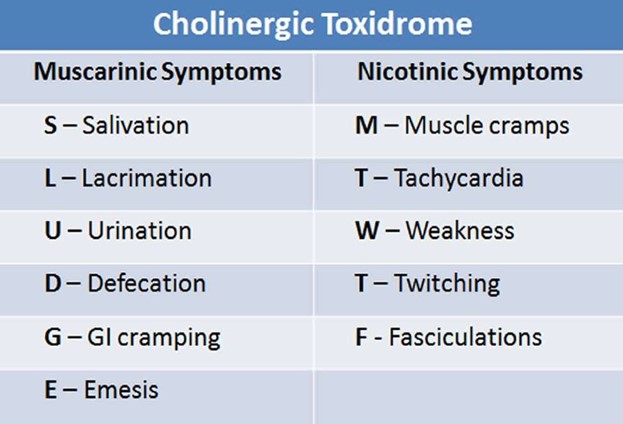A nurse is assessing a client who has Graves' disease and is taking methimazole.
Which of the following findings indicates the client needs a lower dose of the medication?
Exophthalmos.
Diaphoresis.
Bradycardia.
Weight loss.
The Correct Answer is C

Methimazole is a medication used to treat hyperthyroidism, a condition where the thyroid gland produces too much thyroid hormone.
Bradycardia, or a slow heart rate, can be a sign that the client’s thyroid hormone levels have become too low, indicating that the dose of methimazole may need to be decreased.
Choice A is wrong because Exophthalmos, is not an indication for a lower dose of methimazole as it is a symptom of Graves’ disease itself and not related to the medication.
Choice B is wrong because Diaphoresis, or excessive sweating, is also not an indication for a lower dose of methimazole as it can be a symptom of hyperthyroidism.
Choice D is wrong because Weight loss, is also not an indication for a lower dose of methimazole as it can be a symptom of hyperthyroidism.
Nursing Test Bank
Naxlex Comprehensive Predictor Exams
Related Questions
Correct Answer is C
Explanation

Neostigmine is an anticholinesterase inhibitor that indirectly stimulates both nicotinic and muscarinic receptors by interfering with the breakdown of acetylcholine.
Stimulation of muscarinic receptors can lead to increased salivation.
Choice A is wrong because an occipital headache is not a manifestation of a muscarinic response to neostigmine.
Choice B is wrong because fever is not a manifestation of a muscarinic response to neostigmine.
Choice D is wrong because a myoclonic seizure is not a manifestation of a muscarinic response to neostigmine.
Correct Answer is A
Explanation
Choice A rationale: Administering filgrastim after chemotherapy is a standard practice to boost white blood cell count. However, filgrastim should not be given within 24 hours before or after chemotherapy, as it can affect the efficacy and increase the risk of side effects. Administering the medication 12 hours after chemotherapy falls within this contraindicated window, necessitating an incident report.
Choice B rationale: Filgrastim can be stored at room temperature for short periods, and 2 hours is generally within acceptable limits for stability.
Choice C rationale: An absolute neutrophil count of 2,500/mm³ is within the normal range, and there is no contraindication for administering filgrastim.
Choice D rationale: Flushing the client's IV line with dextrose 5% in water before and after administering filgrastim is not appropriate, as this medication is typically administered with saline solution. Using an incorrect flushing solution could affect the medication's efficacy or compatibility, necessitating an incident report.
Whether you are a student looking to ace your exams or a practicing nurse seeking to enhance your expertise , our nursing education contents will empower you with the confidence and competence to make a difference in the lives of patients and become a respected leader in the healthcare field.
Visit Naxlex, invest in your future and unlock endless possibilities with our unparalleled nursing education contents today
Report Wrong Answer on the Current Question
Do you disagree with the answer? If yes, what is your expected answer? Explain.
Kindly be descriptive with the issue you are facing.
